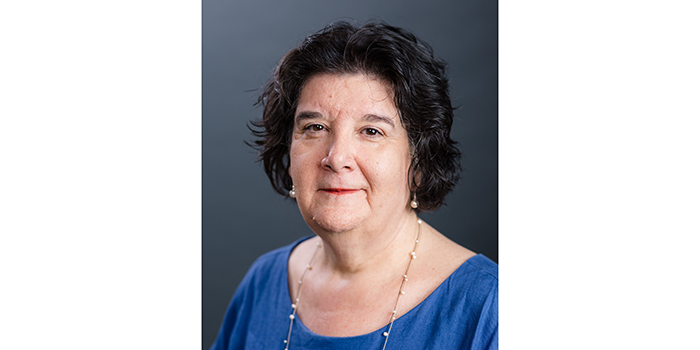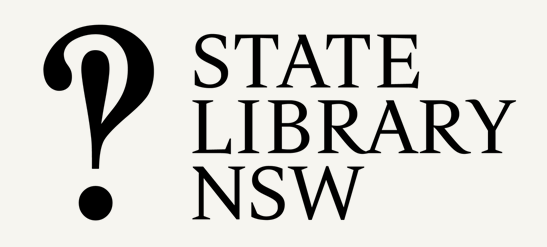Anna Raunik, Executive Director of Content and Client Services at the State Library of Queensland (SLQ), has been involved with NSLA since its very early days, actively participating in projects around community created content, collaborative collections, and most recently, digital legal deposit. She is also the convenor of NSLA’s Heads of Collections advisory group.
At the VALA conference in February this year, Anna was presented with the prestigious Williamson Award, which honours “those who demonstrate leadership, curiosity, excellence and innovation and, in the view of their peers, are outstanding contributors to the development of information technology usage in Australian libraries and information services.”
We asked Anna about her career, her passion for data and what she sees on the horizon for libraries working with technology.
Tell us briefly about your career path.
After studying Arts at Griffith University and Library Science at QIT I worked in the library at the Mount Isa Mines, moving to the State Library of Queensland in the mid-1980s to take up the role of Ethnic Services Librarian. Thirty-five years later, I’m still at SLQ, but I gradually moved away from being a librarian to increasingly technology-discovery-focussed and leadership roles. In my current role as Executive Director Content and Client Services, I oversee the content development service that promotes, creates, and maintains the library’s physical, digital and virtual collections and catalogues. For someone who wasn’t a dedicated library person at the start of my career, it’s clearly where I am now!
How did you get into working with the technology side of libraries?
When I joined SLQ, the library had developed its own library management system (LMS) for cataloguing and circulation. In those days, ‘that person’ at work who could be relied on to try something new suddenly became ‘that person’ who worked on the LMS. So it was my responsibility to look at things that didn’t meet our workflow, to find ideas to streamline service delivery to public libraries, and I had to build the business case, negotiate the priority of the enhancement, everything – it was a great foundation.
Working at the State Library has allowed us to leverage technology to provide a statewide service. To get out of the way, to build unmediated access, to encourage and enable co-creation. I’ve been privileged to work on many of these exciting initiatives as project manager, developer of policy and now as an executive director.
You’re passionate about data, particularly open data – what drives that interest?
I firmly believe libraries have a role to play in this space. We are good at managing content, describing it and managing collections, but thinking about our collections as data and making them accessible in a way that allows new formats, new visualisations and new meaning to be made is an exciting opportunity for our users and for our staff. Our role is not just to link and connect to content but to ensure that it will be preserved and made accessible for future generations, and that a future user can be confident that the content is exactly the same as it was when it was first deposited.
I also think libraries have a role to build community capability and confidence. How many of us are making open datasets accessible through our catalogues? How many reference librarians are using open data sets as a resource to respond to queries? On 6 March – Open Data Day – SLQ hosted Making meaning: Collections as data. This symposium was one of our digital strategy actions: ‘becoming digital by design’. Being digital by design means that the library’s intention is to think, act and be digital first; for digital experiences to be intrinsically part of the library; and that for the people who visit, create and collaborate with us now is the time to fully realise the opportunities of the digital evolution.
When you set content free you have no idea what people will do with it, there is no way you can guess and you get some pretty amazing outcomes.
Which of the NSLA projects you’ve been involved in are you most proud of?
I think the work of the National edeposit (NED) steering group was a prime example of digital transformation. NED started with a presentation to CEOs of the national, state and territory libraries, questioning the requirement to duplicate our practices as we moved to digital legal deposit content. We focused on the outcome for the user and how to minimise duplication for publishers and libraries, and to leverage the digital opportunity. At SLQ in the first six months of NED we have increased our digital publication deposits by 250%, with no need to increase our staffing resource.
What do you think is the next thing on the horizon for libraries and technology?
If you had asked me at the beginning of the year, I would have responded with libraries will continue to have a role to introduce new technologies to communities, to provide safe and neutral spaces for this new technology to be exposed and to allow our communities to explore.
In a world of fake news, libraries continue to play a role to connect users to trusted content and offer support to identify fake news, both through links to verified content and through training in digital literacy. I think going forward it is about stopping seeing ourselves only as content providers to being about the space where people come to become informed citizens. The idea of libraries as agents of informed citizenship isn’t new, but how we do it has changed dramatically.
In a COVID world what is the future? Libraries have quickly moved to being more than a physical space to a service. At State Library of Queensland our membership numbers increased, website and econtent usage is growing, more people than ever are participating in our online events. Some of our spaces have re-opened and the queues demonstrate the need for computer access, study spaces and unique collections not available online. Finding the right balance between the physical and the online will continue to be our challenge
Can you tell us about a project you’re currently working on?
One of SLQ’s current projects is working with a company to ensure that our catalogue and library management system and website are all voice-activated so that they work effectively with devices like Siri and Alexa. Much of voice activation is about a simple transaction: ‘Is the library open?’, ‘What’s on?’, but we’re investigating being able to offer something extra. So the answer to a question might also offer related information, or suggest a book in the collection or a podcast on that topic. We’re also thinking about how we might give people the opportunity through voice activation to browse the catalogue. A simple search query sometimes returns thousands of results – that’s not going to work in a voice activated world! Of course the complexity of work like this is around data privacy – what’s collected, how it’s collected, transparency with collection, who it’s shared with – there’s a lot to think about beyond what’s technically possible.
What advice would you give someone in the early stages of their library career?
Be open and don’t stop learning! I think it’s really important for those who are newer to the sector to be actively involved beyond their workplace. A good way to be open to new experiences is to network with other library staff and find out what life and work in other sectors is like.










